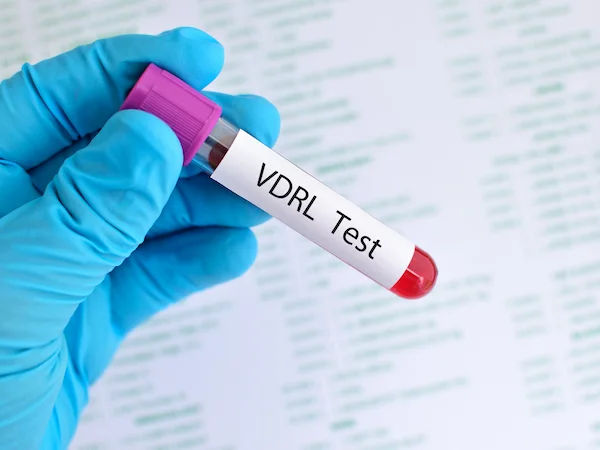Mosquito-Borne Diseases: Causes, Symptoms, and Prevention
Learn about mosquito-borne diseases, their causes, symptoms, prevention strategies, and treatment options. Discover how to protect yourself and control mosquito populations.

Written by Dr.Sonia Bhatt
Last updated on 3rd Jul, 2025

Introduction
Oxygen is essential for your body to function properly. Your blood carries oxygen to organs and tissues to ensure they work efficiently. Blood oxygen levels indicate how well your lungs and circulatory system are delivering oxygen throughout your body. When these levels drop too low, it can lead to a condition known as hypoxemia.
A normal oxygen level typically ranges between 95% and 100%. Hypoxemia occurs when the oxygen levels in your blood fall below normal. This can result in shortness of breath, fatigue, confusion, and other serious complications. If untreated, hypoxemia can lead to organ damage and cyanosis (bluish skin). Identifying the causes and seeking timely treatment can prevent serious health risks.
Common Mosquito-Borne Diseases
Mosquitoes are responsible for spreading several life-threatening diseases worldwide. These infections affect millions of people every year, especially in tropical and subtropical regions. Understanding the most common mosquito-borne diseases can help you recognise symptoms early and take preventive measures.
Malaria: Malaria is caused by the Plasmodium parasite, which is transmitted through the bite of infected Anopheles mosquitoes. Symptoms include high fever, chills, sweating, and body aches. If left untreated, malaria can lead to severe complications such as organ failure and anaemia.
Dengue Fever: Dengue fever is spread by Aedes mosquitoes, particularly in urban areas. It causes high fever, severe joint pain, rashes, and headaches. In severe cases, it can develop into dengue haemorrhagic fever, which leads to internal bleeding and shock.
Zika Virus: Zika virus infections are usually mild but pose serious risks to pregnant women. The virus, transmitted by Aedes mosquitoes, can cause birth defects such as microcephaly in newborns. Common symptoms include fever, rash, conjunctivitis, and muscle pain.
West Nile Virus: West Nile virus is primarily transmitted by Culex mosquitoes and affects the nervous system. Most infections are mild, but in some cases, the virus can cause encephalitis or meningitis, leading to confusion, seizures, and muscle weakness.
Chikungunya: Chikungunya is another viral infection spread by Aedes mosquitoes. It causes high fever, severe joint pain, muscle aches, and swelling. While not usually fatal, the joint pain can persist for months, affecting daily activities.
Transmission of Mosquito-Borne Diseases
Mosquitoes act as carriers for many deadly diseases. They acquire pathogens by biting infected humans or animals and later transmit them to other hosts.
When a mosquito feeds on the blood of an infected individual, it picks up the disease-causing virus or parasite. The pathogen then multiplies inside the mosquito before being passed on to the next person through a bite. Since mosquitoes breed in stagnant water, their population can grow rapidly, increasing the spread of infections.
The transmission cycle of mosquito-borne diseases follows a pattern:
A mosquito bites an infected person and acquires the virus or parasite.
The pathogen multiplies inside the mosquito without affecting its health.
The infected mosquito bites another human and transmits the disease.
The new host develops symptoms.
Breaking this cycle through vector control methods can significantly reduce disease outbreaks.
Symptoms and Diagnosis
Mosquito-borne diseases share common symptoms, but their severity depends on the virus or parasite involved. Recognising early signs and seeking timely diagnosis can prevent complications.
1. Common Symptoms of Mosquito-Borne Diseases
If you are bitten by an infected mosquito, symptoms may develop within a few days to weeks. The most common signs include:
High fever, chills, and sweating
Severe muscle and joint pain
Skin rashes or redness
Headache and nausea
Fatigue and weakness
In severe cases, some diseases can cause neurological complications, breathing difficulties, or organ failure. Seeking medical attention as soon as symptoms appear can improve recovery.
2. Diagnostic Methods and Tools
Doctors use various tests to confirm mosquito-borne infections. These include:
Blood tests to detect viral or parasitic infections.
Polymerase Chain Reaction (PCR) tests to identify the genetic material of viruses like Zika and dengue.
Antibody tests to check for immune responses against specific infections.
Microscopic examination of blood samples to detect malaria parasites.
Early diagnosis is crucial in managing symptoms and preventing disease complications.
Get Tested for Mosquito-Borne Diseases
Prevention and Control Measures
Preventing mosquito-borne diseases requires both personal and community-wide efforts. Since mosquitoes thrive in warm and humid environments, reducing exposure and controlling breeding sites can help minimise the risk of infections.
1. Personal Protective Measures
Protecting yourself from mosquito bites is essential in preventing infections. You can reduce your risk by:
Wearing long-sleeved clothing and trousers, especially in mosquito-prone areas.
Applying insect repellent containing DEET or natural alternatives like citronella.
Sleeping under mosquito nets to prevent bites during the night.
Keeping doors and windows closed or using mesh screens to block entry.
2. Community-Based Interventions
Controlling mosquito populations at the community level helps reduce outbreaks. Local efforts may include:
Eliminating stagnant water where mosquitoes breed, such as in water containers and drains.
Conducting regular fogging and spraying insecticides in high-risk areas.
Raising awareness about mosquito control through public health campaigns.
3. Role of Vaccination
Vaccination plays an important role in preventing certain mosquito-borne diseases. The dengue vaccine is available in some countries for individuals at risk. Research is ongoing for vaccines against malaria and Zika virus, which could provide long-term protection against these infections.
Treatment Options for Mosquito-Borne Diseases
There is no single cure for all mosquito-borne diseases, but treatment focuses on relieving symptoms and addressing the underlying infection. Seeking medical care as soon as symptoms appear can prevent complications.
1. Antimalarial Treatments
If you are diagnosed with malaria, your doctor may prescribe antimalarial medications such as chloroquine or artemisinin-based combination therapy (ACT). These drugs target the Plasmodium parasite and help eliminate it from your body. The type of medication prescribed depends on the severity of the infection and the strain of malaria present.
2. Supportive Care for Viral Infections
Most mosquito-borne viral infections, including dengue, Zika, and chikungunya, do not have specific antiviral treatments. Instead, doctors focus on supportive care to manage symptoms. Treatment may include:
Staying hydrated to prevent dehydration from fever and sweating.
Taking pain relievers such as paracetamol to reduce fever and body aches.
Resting to allow your immune system to fight the infection.
In severe cases, hospitalisation may be required to manage complications such as internal bleeding, neurological effects, or organ failure.
Impact of Mosquito-Borne Diseases
Mosquito-borne diseases not only affect individual health but also place a burden on communities and economies. The widespread nature of these infections makes prevention and control crucial.
1. Health Impact on Individuals and Communities
Infections like malaria and dengue cause prolonged illness, weakening the immune system and making individuals more susceptible to secondary infections. In some cases, severe complications can result in disability or death. Communities with high rates of mosquito-borne diseases often face increased pressure on healthcare systems, leading to overcrowded hospitals and a shortage of medical resources.
2. Economic and Social Impact
The financial burden of mosquito-borne diseases extends beyond medical expenses. Individuals affected by prolonged illness may be unable to work, leading to lost income. High infection rates in endemic regions reduce productivity and hinder economic development. Additionally, outbreaks can affect tourism, trade, and local businesses, making mosquito control a priority for both public health and economic stability.
Challenges in Controlling Mosquito-Borne Diseases
Efforts to control mosquito-borne diseases face several obstacles. While preventive measures and treatments have been effective in reducing cases, challenges such as drug resistance and climate change continue to pose risks. Addressing these challenges requires continuous research and adaptation of control strategies.
1. Drug Resistance
Over time, mosquitoes and the pathogens they carry have developed resistance to certain medications. Malaria, for example, has become resistant to some antimalarial drugs, making treatment more difficult. Similarly, mosquitoes have adapted to insecticides, reducing the effectiveness of control measures like fogging and spraying. If resistance continues to spread, current treatments may become less reliable, requiring the development of new drugs and mosquito control strategies.
2. Climate Change and Vector Adaptation
Rising temperatures and changing weather patterns have expanded mosquito habitats, increasing the spread of diseases. Warmer climates accelerate mosquito breeding cycles and enhance virus replication, leading to more frequent outbreaks. Areas that previously had low mosquito populations are now experiencing new infections. Climate change also affects rainfall patterns, creating more breeding grounds for mosquitoes. Adapting mosquito control programmes to changing environmental conditions is crucial for preventing further disease transmission.
Future Research and Developments
Scientific advancements in mosquito control and vaccine development offer hope for reducing the impact of mosquito-borne diseases. Ongoing research is focused on finding innovative solutions to prevent infections and improve public health outcomes.
1. Innovations in Mosquito Control
New mosquito control techniques aim to reduce the spread of diseases by targeting mosquito populations. Some promising innovations include:
Genetic modification, where mosquitoes are engineered to reduce disease transmission.
Sterile insect techniques, which release non-reproducing mosquitoes to decrease breeding.
Biological control methods, such as introducing natural mosquito predators into breeding areas.
These strategies help lower mosquito populations without relying solely on insecticides, reducing the risk of resistance.
2. Advances in Vaccine Development
Vaccines are a crucial tool in preventing mosquito-borne diseases. The development of the dengue vaccine has provided some protection against severe cases, while malaria vaccines are currently being tested in high-risk regions. Researchers are also working on vaccines for Zika and chikungunya, which could significantly reduce global infection rates. As vaccine research progresses, more effective immunisation programmes may help protect vulnerable populations.
Conclusion
Mosquito-borne diseases continue to pose a serious health threat, affecting millions of people every year. If you live in or travel to high-risk areas, taking preventive measures is essential to protect yourself. Infections such as malaria, dengue, and Zika can cause severe symptoms and long-term complications, making early diagnosis and proper treatment crucial. Prevention strategies like using insect repellents, eliminating breeding grounds, and wearing protective clothing help reduce your risk of infection. While treatment options vary, vaccines and supportive care remain key in managing these diseases.
Protecting yourself from mosquito-borne diseases requires a collective effort. Governments, scientists, and communities worldwide are working to develop better vaccines and mosquito control strategies. However, your role is just as important. By staying informed, practising mosquito prevention techniques, and encouraging awareness in your community, you can help reduce disease transmission. If you experience symptoms of a mosquito-borne infection, seeking medical care early can prevent complications. Your actions today can make a difference in protecting your health and contributing to the fight against these diseases.
Consult Top General Physicians
Consult Top General Physicians

Dr. Gopal Hajare
General Physician/ Internal Medicine Specialist
8 Years • MBBS, DNB GENERAL MEDICINE,MNAMS ( MEDICINE ) FACEE
Pune
Apollo Clinic, Kharadi, Pune

Dr. Mijanur Rahaman Mondal
General Practitioner
3 Years • MBBS
Kolkata
Dr Utsa Basu Clinic, Kolkata
(25+ Patients)

Dr G Prathyusha
General Physician/ Internal Medicine Specialist
5 Years • MBBS DNB (Family medicine), CCEBDM (Diabetology), PGDGM (Geriatrics), Primary care Rheumatologist.
Bengaluru
PRESTIGE SHANTHINIKETAN - SOCIETY CLINIC, Bengaluru

Dr. Sumanjita Bora
Cardiologist
9 Years • MBBS, PGDCC
Bengaluru
Apollo Clinic, Sarjapur Road, Bengaluru

Dr. Sangamesh G Kowlgi
Family Physician
3 Years • MBBS
Bengaluru
PRESTIGE SHANTHINIKETAN - SOCIETY CLINIC, Bengaluru



.webp)

